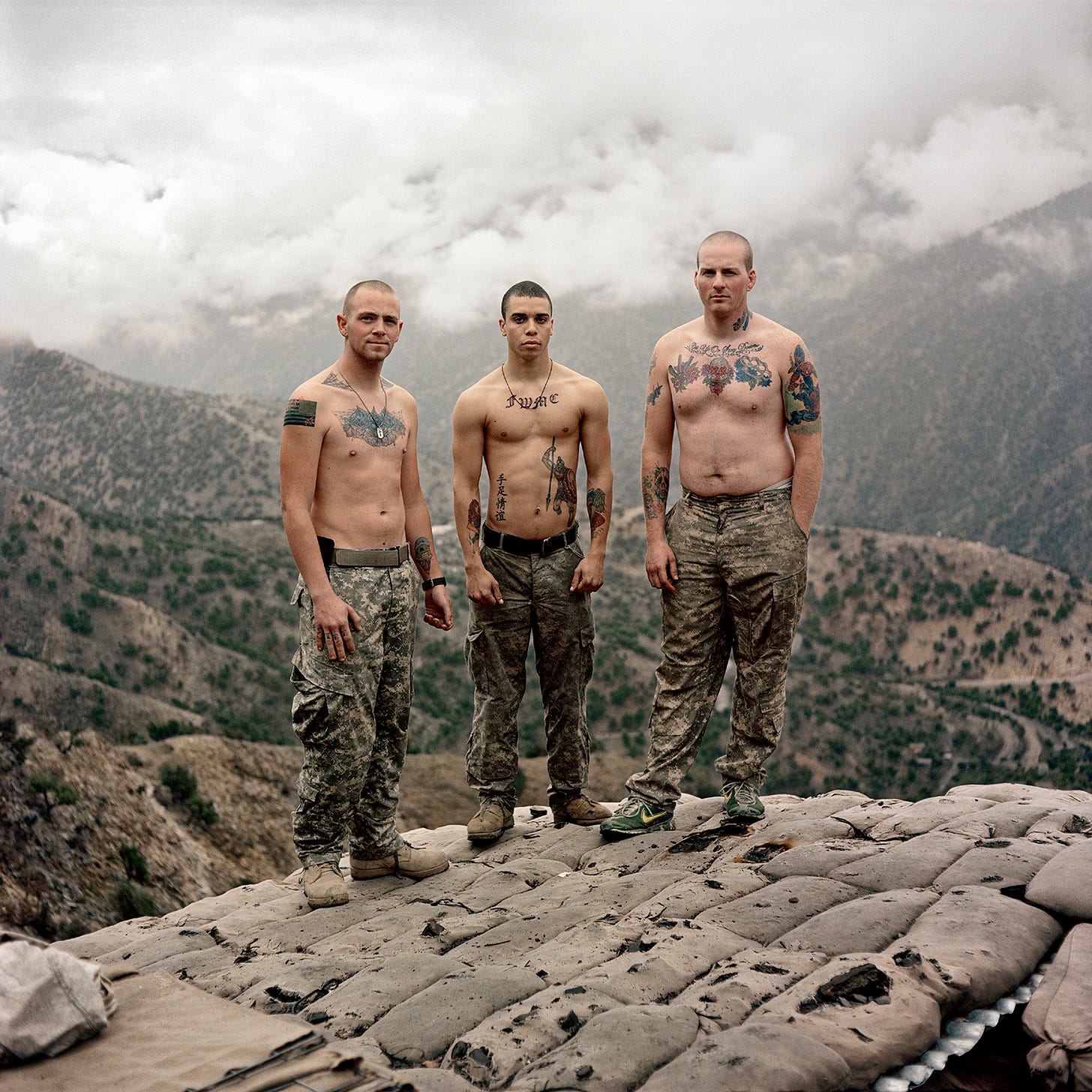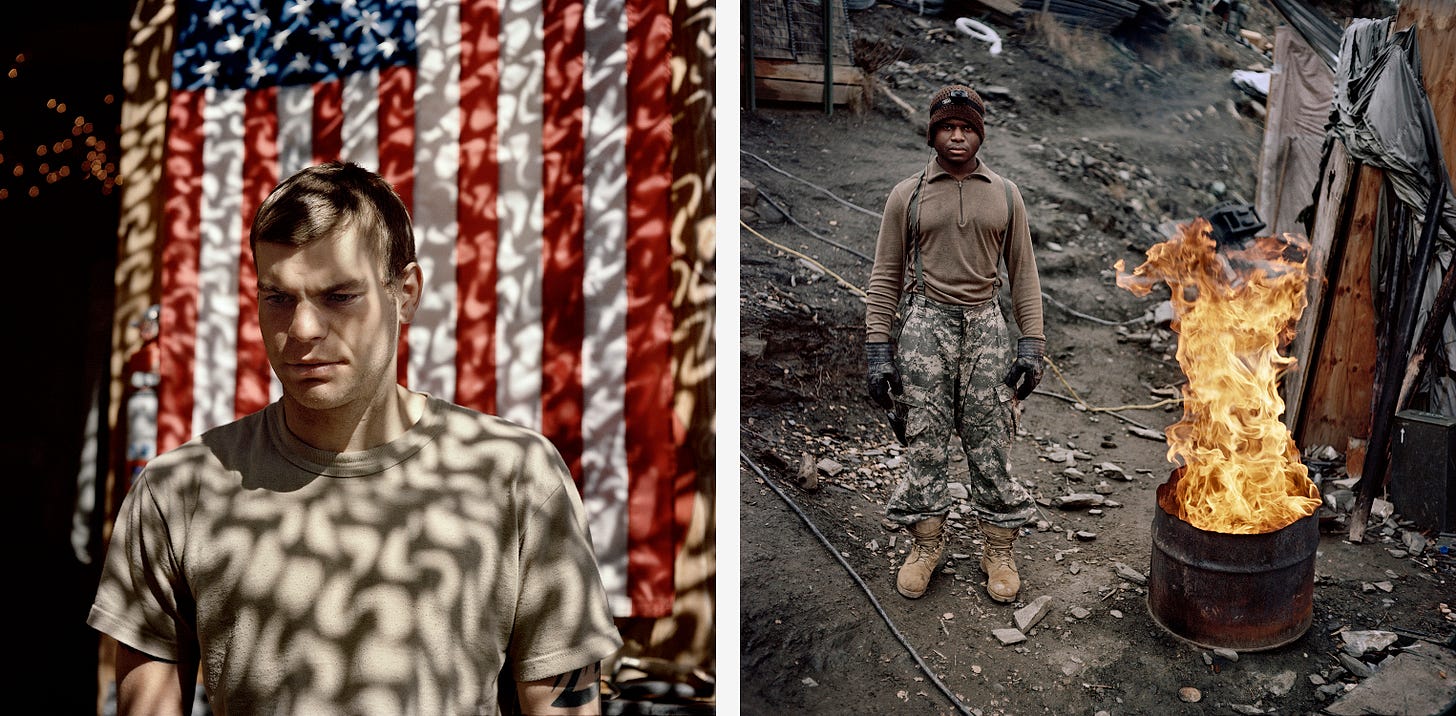Boredom, Fragility, and Exhaustion in the Forever War
In The Atlantic, former Marine Elliott Ackerman unpacks a series of portraits I made during the 2009-2010 troop surge in Afghanistan
For the 20th anniversary of 9/11, The Atlantic asked Elliott Ackerman, an author, former Marine, and intelligence officer who served five tours of duty in Iraq and Afghanistan, to write about a series of portraits I made in Afghanistan during the troop surge in 2009 and 2010, as President Obama attempted to turn the tide of the war.

In the closing paragraph of the piece, Elliot makes an interesting comment about my images: “There is a sameness to these portraits, which is in no way a criticism; in fact, it's what lends them their cumulative power. The torn uniforms. The fresh tattoos.” This statement made me reflect on the work, and the process of making a series of photographs that have a common thread.
I took these portraits while embedded and on assignment for Time. My goal for the magazine was to make a work of photojournalism about the war with my digital camera. But I also carried a Mamiya C330 analog camera and color Kodak Portra film, shooting for myself in the downtime between patrols and kinetic activity.

I didn't really grasp what I was doing at the time. I was exhausted, out of my depth, trying to make sense of the war around me. Every now and then I would see a young soldier or Marine standing in a remote combat operations post and intuitively decide to make a portrait. Or I would come upon a fragile group of young soldiers and pose them for a simple and structured environmental portrait.
I remember thinking there was something raw and anthropological about this visual language that wasn't construed by a dynamic composition of action—the “spectacle of war.”
When I consider Ackerman’s description of my photos as having a “sameness,” I can agree with him in retrospect. Despite not grasping my own biases at the time, I was photographing boredom and exhaustion, and I think these are the emotions that give these photographs cohesion. They were the emotions that I personally gravitated to at the moment, negating the blind patriotism that had driven so much of our lives after 9/11.
Read: “Ask Us What We’ve Seen: American service members reflect on their time in Afghanistan.” (The Atlantic)




Great series. Reminds me of Tim Hetherington's book Infidel. I assume you know it? It's a bit strange to me his work hasn't resurfaced much during this “ending.”